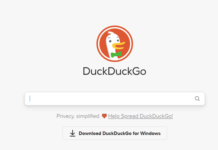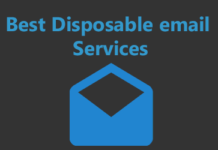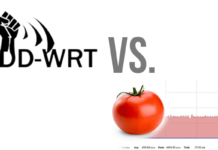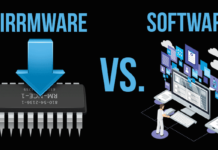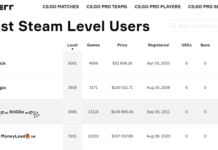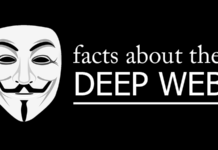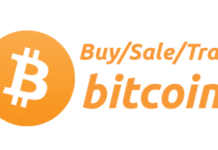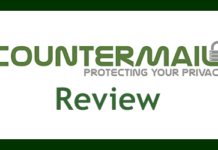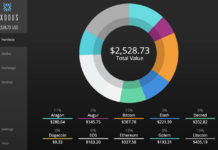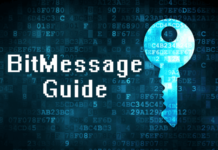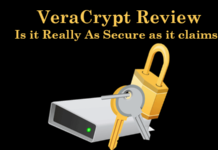Searching for the best Encryption software? Yeah, I know; well if you are, your search has brought you exactly where you should be.
Throughout this piece I’ll be sharing some of the best free encryption software along with couple premium ones; which will help you encrypt and secure your computer systems regardless of you being on a Windows, Linux or OsX system.
How to Choose The Best Disk Encryption Software?
When you’re trusting a software with your data, a lot needs to be checked, right? You can’t just install a random software claiming to be “the most secure data encryption software” on the planet.
So, here are a few key points you should consider when choosing your encryption software.
- Open source: These are the best kind. Although rare, they let you verify the software code on your own. Almost no chances of backdoors and loopholes existing.
- Zero knowledge: Only go with those tools which offer zero-knowledge, client-side encryption. These tools have absolutely no access to the stored data.
- User-interface: If you’re not technically inclined, you may wish to check the UI/UX of a software. Some requrie a bit more operating skils than the rest.
- Free trials: In order to check anything and everything, including encyrption/UI/overall features, going with a free-trial encryption software is the better bet.
- Governing laws/jurisdiction: As a general rule, despite all the encryption and security, it’s best to avoid nations which aren’t very popular for their anti-privacy laws. The Five Eyes is a list is countries you should avoid.
- Recovery mechanism: Some tools have a recovery mechanism, let you recover files if you lose access to your passwords.
15 Best Encryption Software for Disk and Data Encryption
Why you’d want to encrypt your files is obviously a personal choice, you may just be a very private person, you may be a security freak like me; or you just wish to learn how to encrypt files, any or all of these is possible; isn’t it?
So here I bring to you the best Encryption software known to man; let’s get started.
NordLocker
![]() Website: https://nordlocker.com/
Website: https://nordlocker.com/
NordLocker is one of the best end-to-end encryption software, from “the” best VPN provider- NordVPN.
All files are end-to-end encrypted and it employs zero-knowledge architecture. So no one, not even NordLocker knows what resides in the encrypted files.
These files can’t be decrypted by any third-parties including NordLocker even if they wanted to, pertaining to the strong encryption algorithms. These include ECC, Argon 2, AES 256 to name a few.
It’s literally made for “everyone”, not a tech-geek? You don’t need to be. All you have to do is “drag” the files you wish to encrypt, and drop it on your locker. Done!
File-sharing is made easy and secure, either send files directly after encrypting them or share via links. The tool provides a “Recovery key” which is basically a recovery-seed, helps you gain access in case you lose your primary password.
No limit on the file size or type. Use cloud storage services? Well they aren’t “secure” by default, with NordLocker, you can encrypt your files before uploading them to the cloud. The locker also doesn’t limit you on the number of “Devices”. Unlimited number of devices can be using the locker simultaneously.
It’s free, for absolutely USD $0.00 you get 3 GB encryption. Or pay the negligible fee of USD $1.00/month for unlimited encryption. Even offers a 30-day money-back guarantee.
Get NordLocker Now and Grab 53% OFF!
VeraCrypt
![]() Website: https://www.veracrypt.fr/
Website: https://www.veracrypt.fr/
VeraCrypt is my personal favourite encryption software, and you’ll soon see why. First of all, it’s free and open-source. Secondly it can be used to encrypt either single files/folders or complete partitions and devices such as USB sticks etc!
It prevents all and any kind of data-theft, data leaks, or brute force attacks. Although one of the most powerful weapons in its arsenal is its ability to encrypt data on-the-fly!
What this means is, while encrypting or decrypting the files, unlike most other file encryptor (s) available out there which require you to complete the process in one go, Veracrypt doesn’t!
So, you can pause, resume and even shutdown your system mid-way, and then continue the process at a later time from the point where you stopped.
On-the-fly also means that you don’t need to “pre” encrypt or decrypt a file if you wish to read, write or transfer it.
The encryption/decryption happens “on-the-fly”; when the file is in the RAM and the action is being performed on the file and this adds a lot more security to it.
Also because of VeraCrypt’s on-the-fly feature, nor does it slow your system down, neither the file or partition being encrypted. They can be accessed with the same speed as if they weren’t encrypted.
VeraCrypt also supports a “hidden operating system”, something that you can create, store your files in, and if you’re ever forced to decrypt your system under hostile conditions, you can decrypt the general OS, and not the hidden one.
Because it’s hidden, your perpetrator won’t know of its existence, and hence your files would still be safe.
Let me finally sum this section up as I do not wish to make this article into a Veracrypt review; and we need to impart equal attention to the other encryption software listed here as well.
Veracrypt is literally the best encryption software you can get, it’s free, easy to use, and feature-rich, period.
DiskCryptor
Website: https://www.diskcryptor.net
DiskCryptor is a Windows only, open source encryption software, although it does support both 32 and 64-bit Versions.
Let’s be honest, it’s not as feature rich as VeraCrypt; but the one similarity it does mirror with VeraCrypt is its ability to let you pause an ongoing process, shutdown your system completely, and then resume the process later.
Nearly all the file systems such as NTFS and FAT 12/ 16 / 32 along with exFAT are supported.
It lets you encrypt not just file, folders and partitions, but also external drives such as USBs or CDs and even ISO files!
One edge it does have over VeraCrypt is its relatively smaller size.
Like VeraCrypt, it too automatically dismounts encrypted partitions off the RAM so that they aren’t accessible without decryption the next time the system comes online.
Diskcryptor can also be used to encrypt more than one partitions simultaneously; and it too doesn’t make a huge impact on the speed of the drives/files it has encrypted while accessing them.
Its “additional security” feature lets you use any file/folder of your choice, or generates a random file as the “key-file” (password file), which can be used to decrypt the encrypted partition or folder.
No password is required in that case, although it still allows you to add a password to the keyfile in addition to the file for an extra layer of security.
It supports both RAID volumes as well as Dynamic disks, and as for encryption protocol, AES, Twofish and Serpent (and their types) are supported.
So let’s just say it’s one of the best available file encrypting software out there even though its graphical interface is pretty old school.
GPG4WIN
Website: https://www.gpg4win.org
You may have already been acquainted with GPG4WIN in our recent article How to use PGP.
Although obviously, GPG4WIN does a lot more than just PGP encryption. It’s capable of encrypting E-mails, files and folders and in the simplest of possible steps.
Along with the encryption, it also has a feature called “verify”, which let’s you verify the contents’ authenticity and make sure it wasn’t altered after it was encrypted by any third-party and this is what makes GPG4WIN special.
GPG4WIN is available only for Windows as of now, but it doesn’t compromise in the least when it comes to its security features.
It supports OpenPGP, S/MIME and even SmartCards.
Encrypting or decrypting files is simple, simply selecting them and clicking on “encrypt” generally does the job.
Along with the encryption, the files can also be protected with an additional password for extra security which is a nice addition.
It supports digital signatures as well which can be used to provide and verify the authenticity of files/folders and mails.
The user-interface is pretty advanced, and anyone with basic computer skills would understand how the program works.
It also has Kleopatra as its certificate manager which is used to manage the PGP certificates, there are advanced buttons for importing and exporting these certificates directly or storing them on a PGP key-server.
It’s lightweight, and in a nutshell is one of the best encryption software especially if you need an easy to understand interface.
AxCrypt
Website: https://www.axcrypt.net/
AxCrypt is a freemium software from Axantum. Meaning it has a free, as well as a more advanced, paid version.
It supports Windows and Mac as well as Android and iOS. Although it seems to be missing support for Linux.
The one feature which totally won me over was its double-click support, meaning you can simply double-click to view any encrypted file or folder just as easily as it is to view any unencrypted data.S
It lets us secure files and folders individually, as well as whole folders. In case the files are modified/edited, AxCrypt automatically re-encrypts it once its saved without you needing to interfere so that’s another plus I suppose?
Its mobile-support is another feature it should be commended for, which lets you edit/ view your encrypted documents easily on your mobile phones.
It weighs less than 1mb! Now that’s impressive. As for encryption, it uses AES 128-bit, military-grade encryption protocol, and It also has embedded “iterative key wrapping” into itself which prevents brute force attacks.
It also has an optional passphrase cache which makes it easier for you, if activated, to simply type your password once/logon and it remembers it for the rest of the session.
And if all those features weren’t enough, it also has an inbuilt shredder which takes care of temporary encrypted plaintext files. Not to mention its ability to let you share files with colleagues, who can decrypt it on their systems, using their passwords.
The passwords can also be stored online, in its “password manager”, file-wipe removes files instantly if needs arise, and it supports files larger than 4GB!
So yeah, it’s one of the best encryption software out there, period.
7-Zip
Website: http://www.7-zip.org/
I doubt anyone reading this is oblivious to what 7-zip is. Even if you’ve never used it to “encrypt” data, I’m sure you’ve heard of it, or used it as a file-compressor, something like WinRar, haven’t you?
7-zip is an open-source program, and was originally intended to be a compression software, it has the power to compress and decompress nearly every file-type available out there.
But as one of the encryption tools, its features are rather limited. Note that, limited and “secure” are two different things, it’s ultra-secure, with its 256-bit AES encryption and a very powerful command line interface for some advanced tasks.
But that’s it. It encrypts, and decrypts. There are no fancy features such as password managers, or shredders. So, it’s probably the simplest encryption tool on the list, and should be treated as such.
Infact, its simplicity is what makes it one of the best encryption software out there!
Dekart Private Disk
Website: https://www.dekart.com/
Dekart Private Disk is a freemium software, so it’s free to use for the first 30-days, and then you have to pay for it.
Although Dekart works on a completely different infrastructure as compared to all the other encryption tools we’ve talked of so far.
Unlike other tools which encrypt your hard-disk right there and then, Dekart is more like a separate vault, it lets you create an additional image, or in simpler words an extra partition.
So you’ll have one more drive on your computer when Dekart is mounted (enabled/running), you can open that drive; and copy-paste the files you wish to store in this encrypted partition.
Once the files are pasted there, they’re encrypted with your password (which you can setup manually), then you can simply disconnect the partition and it would disappear from the computer.
To access those files, you’ll need to know where exactly you’ve stored the Dekart image and what your password is, so that’s security enough I suppose.
It also supports external storage devices such as USB drives, CD-disks, SD-cards iPods etc to be encrypted.
Dekart uses AES 256 bit encryption protocol to encrypt your files, and has some advanced features such as “sleep mode” which automatically disconnects your private partition if you leave your system unsupervised for some time.
It also boasts of other features such as a backup of the encryption key, and brute-force attack in case you forget your password.
Bottomline, it totally deserves to be on this best encryption software list, don’t you agree?
BitLocker Drive Encryption
Website: https://docs.microsoft.com/
Bitlocker Drive Encryption is an encryption tool from Microsoft! Well yeah, already got your vote of confidence, didn’t it?
And like all other tools on this list, it too protects your data against data theft, leak, or direct attacks.
Although Bitlocker is available only on the “Ultimate, Enterprise and Pro” version of Windows, so if you’re using “Home” or any other version, you’re out.
Bitlocker needs, and functions better with a “Trusted Platform Module” installed, although it also can be used without a TPM and most computers these days are pre-armed with TPM so that shouldn’t actually make a dent.
It’s actually pretty easy, probably the easiest to use Bitlocker once it’s setup, considering it’s a Microsoft product, and is generally pre-installed, all you need to do is click on “turn on Bitlocker” to encrypt a drive.
Although let me make it clear that Bitlocker is best, and most used for “whole drive encryptions” and isn’t really made for individual file/folder security, it keeps things simple, fast and easy.
It uses AES 128 and 256 bit encryption to secure your data, and for most of us that sounds like more than enough security we need (unless of course, you’re Edward Snowden).
Bottomline, It’s not open-source, but most users don’t care as long as it’s free, and it’s sufficiently secure as well, and the world has enough Windows users, so yeah it totally can be one of the best encryption software.
Although in my personal opinion, use VeraCrypt or any other of the encrypt tools listed above along with Bitlocker if you actually need some peace of mind.
Cryptainer
Website: https://www.cypherix.com/disk-encryption-software/
Cryptainer is an Encryption software alike Bitlocker, which lets users encrypt whole drives rather than individual files. It actually creates new virtual drives on the system which are encrypted and then lets users store files and folders inside them.
This in a way is a method of letting users encrypt more than one files using a single password considering how the complete drive is encrypted.
Obviously it does let users individually encrypt files and folders if they want to which can be accessed using a password.
There’s no limit to the number of drives you can create using Cypherix Cryptainer (Cypherix is the parent company for Cryptainer), the size of the drives too is quite extensive and can be upto 10 Terabytes! Also it lets users encrypt files as lightweight as 1mb.
What if you need to move the encrypted data from one system to another? Cryptainer offers a mobile-version which is like a portable, standalone version of the program, it can be carried using USB drives, SD cards and so on hence letting users encrypt their removable devices and move data without having to install the Program on newer systems.
It even takes things a step further by offering “Secure Mail” which lets uses E-mail one another and the recipient doesn’t need to have Cryptainer; rather just a password which is used to decrypt the file.
It does offer Cryptainer LE which is a free (lower-end) trial version of the tool; or users can purchase its paid versions starting from USD $45.00 and going upto USD $139.00
As for encryption it uses 448-bit encryption keys to secure the data.
Folder Lock
Website: https://www.newsoftwares.net/folderlock
Folder Lock provides one of the easiest and smoothest User interfaces when it comes to an encryption software. Contrary to its name, it’s capable of encrypting files as well among other features.
For starters,”dynamic” lockers are used, these are basically lockers which can be created using Folder lock and your files are stored within them. They use 256-military grade encryption and are capable of working on-the-fly (you can pause-resume encryption and don’t have to get it all done in a go).
Although what makes them dynamic and unique is you don’t have to pre-allocate a specific amount of space to them. Rather, they’re pretty small in size when created and have the ability to expand in storage as more and more files are added to the locker.
It also features “wallets”. This is where you can store more sensitive information such as Credit card numbers, bank account numbers and so on. For better organization, you can even add backgrounds ,card templates and other similar fun-stuff which will help you recognize them easily.
Also lets users encrypt their E-mails before sending. As for USB-support, it lets users instantly convert their normal lockers into “portable” ones which can be copied onto USB drives and other media devices and used on other systems without compromising security.
Or, there’s a button called “Protect USB Drive” which allows you to just directly copy encrypted lockers to the USB drives directly. Also features a “shredder” which deletes all sensitive information beyond probable chances of recovery.
It also has massive support for Mobile-encryption making sure you can protect data on mobile devices just as easily as on computers.
Cryptic Disk
Website: https://www.exlade.com/en/cryptic-disk/
Cryptic Disk is a Disk Encryption software developed by Exlade and released in 2003. It lets users create “containers” which are basically encrypted drives, which can be unlocked/accessed with a password.
It doesn’t mark the encrypted container in anyway, hence making it virtually impossible to be identified as an “encrypted drive“. Also, the size of these containers isn’t and needn’t be static, or pre-defined. Meaning after creating a container, the size is expanded on-the-go as more data is added to it.
It provides extreme anonymity by letting users create an extra hidden volume, inside the encrypted volume. Hence even if the encrypted volume is compromised, the hidden volume will still remain safe. There’s no way to prove or establish the existence of the hidden volume.
Furthermore, the hidden volume can be branched into three nested volumes, meaning 3 hidden nested volumes can be created inside the encrypted volume for even more security. Each of these nested volumes have their own individual passwords.
There’s no “icon/name/element” a user needs to click to access any of the volumes. Rather, whenever a password is entered the volume respective to that password is mounted. This makes sure that no one can just “discover” the hidden volumes unless they know the exact password.
As for encryption, it uses ES (Rijndael), Serpent, Blowfish, Twofish, and CAST6. Multi-level encryption (encrypting the same file over and over again) with multiple algorithms is possible on-choice by the user. Also makes uses of Hardware acceleration whenever supported by the system skyrocketing the speed.
Can be installed, however also offers a portable more anonymous mode. Even supports 2-factor authentication using key-files and folders in addition to (or instead of) the password. Has a trial-version, however paid plans start from USD $94.00
Challenger
Website: https://www.encryption-software.de/challenger/en/index.html
Challenger is a freemium tool, meaning it’s largely free however users can unlock more features if they pay for its premium version.
It can be used to encrypt data not only on your Computers, but also on Mobile phones. It uses a special Cipher developed in Germany for encryption, the said cipher consists of an unusually long list of random numbers.
Users can use custom passwords, as well as this random number list as their passwords for decryption the encrypted data. One of its best features is that it also offers a “portable” version.
This version can be stored on an USB-stick or a CD drive, and used directly from there without requiring any installation. This makes it possible for you to encrypt/decrypt data on any computer in the world.
The portable version doesn’t need a “dedicated” USB stick, meaning you can also store other files on the stick and it doesn’t have to be dedicated to Challenger. Additionally, you can also encrypt the data that’s stored on your USB sticks where Challenger is stored.
Challenger also lets us store the encrypted data online on platforms such as Dropbox, Google Drive etc.
InterCrypto Advanced Encryption Package (ICAEP)
Website: http://www.aeppro.com/
The “Advanced” in the Title isn’t just a marketing gimmick. Let’s just say that InterCrypto could very well be the most feature-rich encryption software on this entire list. It definitely isn’t perfect, but much nearer to perfection than most.
My personal feature with ICAEP is its support for as many as 20 Encryption algorithms. Which by far is the most extensive list we’ve ever seen. It supports AES 256, RC2, MARS-448, TWOFISH, SHARK, BLOWFISH- 448 and many others.
If you’re the least bit familiar with Encryption algos, you’d agree these are some of the best and most secure ones.
Then, it’s simpler and much easier UI is why I love the tool. Most label it as “outdated” or too “classic-looking”. But if I’m a new user, absolutely devoid of any disk encryption software experience, I’d kill for the simplicity that ICAEP provides.
Some of its features include its ability to encrypt “text” in addition to Files. So if you copy something even that’s encrypted! You can even create self-extracting files, which are encrypted and can be shared over social media or E-mails.
It also supports Public Key Cryptography which allows for additional signing and verification of files providing further security. You can also use a USB stick as the Decryption key.
Its GUI supports drag & drop for encryption, although advanced users can use command-line for encryption and decryption as well. 30-day free trial available. After that, costs USD $49.50 for one PC, USD $78.00 for two PCs and USD $117.00 for three PCs.
Crypto Expert
Website: https://www.cryptoexpert.com/
Crypto Expert is a Windows-only Disk Encryption solution, but is pretty impressive with its features. One of my personal favorites is it one-file backup feature. The entire vault’s content reside in one single encrypted file.
This single file can be stored/uploaded/copied anywhere you wish as a backup. So in case the device gets corrupted, lost or stolen, the data still isn’t lost. There’s no limit to how much data can be stored in the vault. It can easily exceed 10GB and the vault wouldn’t mind. There also is no limit on the number of secure vaults one can create.
The unlock keys can also be stored on a removal drive, such as a USB-Stick. Protected with a Master password, any and all risk of the USB-stick falling in the wrong hands is eliminated.
It even supports LAN access. In other words, if your encrypted vault is on another system and the system is connected to you via LAN, it still can be decrypted.
The secure vaults are masked as local drives for the computers. And finally there’s support for On-the-fly encryption/decryption. In other words, there’s no “encryption/decryption” process you have to wait for. The vaults can be used just as you’d use a normal drive without having to wait.
There’s a 30-day trial period. Else, it costs USD $59.95 for a single PC.
Crypto Forge
Website: https://www.cryptoforge.com/
Crypto Forge is another one of the Best Encryption Software for Ultra Secure Disk Encryptions. Although, along with encryption it also brings in a number of other useful tools with itself.
For e.g. there’s an E-mail encryption feature which lets you encrypt E-mails. Recipients can decrypt them without installing anything. There also is a file-shredder which is capable of shredding files beyond recovery.
Additionally it supports cipher-texts. So any file/media/extension can be converted into these cipher-texts. They can then be copy-pasted wherever you want, or mailed. Once decrypted, the text is re-compiled into the original file that it was.
As for its encryption algorithms, it not only uses the AES 256-bit encryption, but also Blowfish, 256-bit Gost, 256-bit Rijndael, and 168-bit triple DES. It’s capable of encrypting files as large as 16TBs on your HDDs! While encryption, you can choose to encrypt the file-name in addition to its content. The file then uses this auto-generated, encrypted file name instead of its original name.
It also automatically compresses the files which makes sharing and storing them easy. It offers a 30-day free trial. Or, you can purchase it for USD $39.70. More expensive packages allowing multiple users available as well. Is exclusive to Windows.
Checkpoint Sandblast Agent Endpoint Protection
Website: https://www.checkpoint.com/products-solutions/endpoint-security/
Checkpoint was launched in 1999.
That alone speaks volumes for its legitimacy and integrity, doesn’t it? You don’t survive in the “security” business for 20 long years, if you’re not secure.
It encrypts the entire hard-disk. Including the OS, temp files, and everything in between.
Even if the HDD is removed and used on another computer, it prevents unauthorized copying or installations.
A remote VPN is provided for accessing files remotely and securely.
Pre-boot authentication makes sure no files are loaded unless the system is properly authorized.
Even Smart cards and dynamic tokens can be used for logging in.
In case you forget your password, remote help is provided.
Pre-configured anti-brute force attacks can be configured forcing a lockdown in case of hack attempts.
Well, it’s not as simple as Veracrypt, but definitely one of the most secure encryption software for disk encryption.
That been said, note that Checkpoint is targeted more towards groups, companies and enterprises.
However, it totally can be used by individuals as well, although it may be a tad-bit expensive. (But hey, when is true security cheap?)
AES Protect
Website: https://www.directorandgeneral.com/aes-protect/
I’ll be honest, it’s not the most feature-rich disk encryption software out there. However, it’s just as secure if not more as compared to most other options on this list.
For starters, it’s portable! That means you do not have to install it. You can run it directly off your USB stick or your hard-disk without having to leave footprints on your system.
That also makes it ultra light-weight! It weighs less than 30KB! You wouldn’t be trading off space for security. As the name suggests, it uses AES encryption for encrypting your data.
If and when you encrypt a file using AES protect, it doesn’t rename the file with a recognizable file extension either! Files remain completely normal to the naked eye.
Also, you can set a 500+ character long password (if you can remember it). Do note that it’s like a Bitcoin wallet, if you forget your password, there’s no way to recover that!
The only problem with AES protect in our personal opinion is its speed. It’s not as fast as NordLocker or some of the other options on this list. It’s 100% free though!
Kruptos
Website: https://www.kruptos2.co.uk/
Kruptos is an all-round solutions for your PC, Android and Mac. Well, it’s not exactly a “disk” encryptor. Rather, it encrypts files and folders.
256-bit encryption is used to encrypt files.
It can encrypt PDF files, photos, videos and basically everything else. On top of files, it’s also capable of encrypting entire USB disks. It’s even capable of encrypting emails!
Maybe you use cloud storage a lot? Did you know that most of them aren’t encrypted or secure? (Here’s a list of End-to-End encrypted cloud storage services). Well, for the unencrypted services, Kruptos is also capable of encrypting those.
It has its own cloud sharing platform which lets you share files and folders between devices/users.
The tool also includes an in-built file shredder. It’s important as simply “deleting” files doesn’t really delete them.
Two other basic features include a random password generator as well as an analyzer which detects easy-to-hack passwords.
There’s a free trial which you can start with. If you like what you see, its paid plans start at $59.95. All its plans are for lifetime.
The tool is cross-platform compatible. You can use it on Windows, Mac and even Android.
Final Words:
Let’s wrap this discussion on the best encryption software folks. So, if you ask me now which tool I’ll bet on to keep my system safe, I’ll just be honest, and give you my personal, subjective opinion that I’m in love with Veracrypt.
But that in no way means that the other tools on this list are any less deserving, every single one of them has its own pros and cons but the one thing they all have in common, is “security”.
So you can go for any one of these best encryption software listed here; with your eyes closed, and even though the user-interface, size, speed may differ, you won’t compromise upon your security and that’s for sure.
Do let me know what you think of this piece on the Best Encryption Software on our Facebook page.
